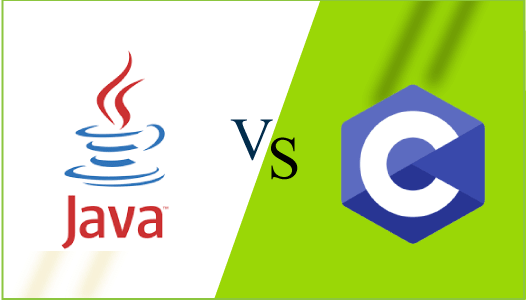What is the Difference Between C and Java?C is a procedural, middle-level, compiled, and general-purpose programming language. Java is a high-level, object-oriented, interpreted, and general-purpose programming language. Another key difference between C and Java is that C follows the top-down approach to develop applications while Java follows the bottom-up approach. C is easier to learn than Java. We can quickly and easily develop an application using Java. If the same program is created using the C language, the code will be lengthy and will take more time than Java. There are some other differences that we have discussed in this section. CC is a middle-level and general-purpose programming language. It was developed at Bell Labs by Dennis Ritchie, in 1970, for the Unix Operating System, in 1970. It is ideal for developing firmware and portable applications. JavaIn 1991, Sun Microsystems has developed the Java programming language. The team who had developed Java is known as Green Team. When the Sun Microsystems had launched Java, its name was OAK. In 1995, its name was changed to Java. Sun Microsystems has been acquired by Oracle Corporation, in 2009. Since then, Java is the product of Oracle. The main aim to develop this language was to develop applications for hand-held devices. 
Difference Between C and JavaIn the following table, we have described some key differences between C and Java.
Although, Java has become a popular programming language for developing the web-application, android apps, IoT applications, etc. Still, C has not lost its popularity because it is used to develop firmware, operating system, and other system utilities. |
 For Videos Join Our Youtube Channel: Join Now
For Videos Join Our Youtube Channel: Join Now
Feedback
- Send your Feedback to [email protected]
Help Others, Please Share









